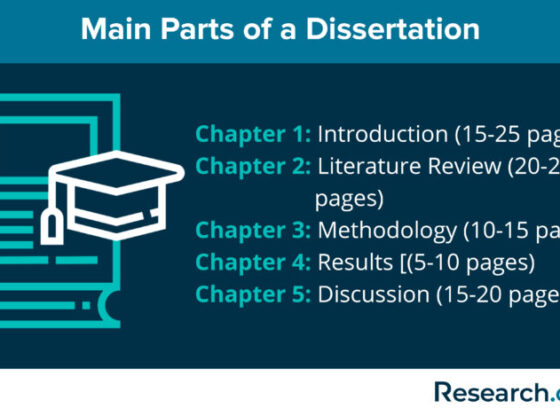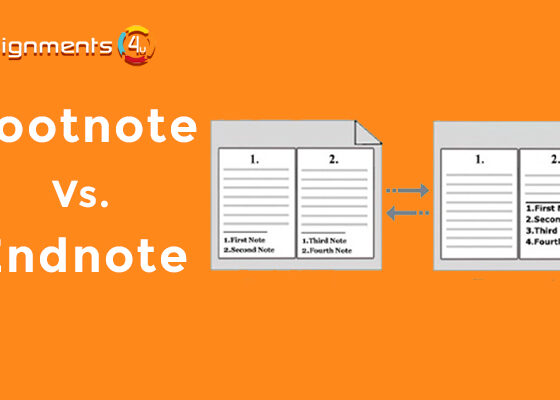Know About Keyword Stuffing in SEO
Whenever you are striving to generate organic traffic, the first and foremost strategic step of yours should be having an SEO friendly website that smoothens the path to imply different ideas in practicality. The resultant outcome will be obvious that through taking such steps you are going to generate maximum organic traffic therefore in a position to convert such traffics into sales for the upscale growth of your business. If you are trying to optimize your website for the search engines, then you must avoid all sorts of shortcuts or unethical practices and stick to the right strategies only.
Shortcuts and unethical ways, including keyword stuffing, keyword cannibalization and link farming won’t help you at any stage. Rather, such steps will hurt you in the long run with too much damage caused. Therefore, it is advisable that you concentrate on trying only those SEO strategies that are going to speed up the ranking process naturally and to help you start generating leads faster without hurting anything in the midst.
Keyword Stuffing
Keyword stuffing can be defined as a process of writing a webpage, which is stuffed with a number of keywords in order to manipulate any website’s organic ranking in Google and rest search results. Filling in pages with more than required keywords and or failing to meet the keyword density might lead to negative user experience. It can harm your site’s overall organic ranking.
You may avoid keyword stuffing in SEO with your focus on creating useful, scannable and informative content that uses keywords appropriately and contextually to gain the benefits without encountering any harm.
Examples of visible keyword stuffing include:
- Unnecessarily repeating the keywords or keyphrases continuously
- Adding keywords in a page repeatedly, which are out of context
- Inserting blocks of the same keyword
- Using irrelevant keywords
Although there is no exact keyword stuffing percentage, industry experts believe that 2% of keyword density is the perfect strategy to follow.
Keyword Stuffing is Bad for the SEO of Your Website

Until now, it has already been confirmed that keyword stuffing is a black-hat SEO strategy and it creates an awful experience for the users.
The primary purpose of your website should be to provide solutions to your prospective users. If you stuff a page with irrelevant keywords, you are creating a hurdle for yourself as you are unable to fulfill that important purpose. Writing for the search engines and not for the readers are bound to cause an increase in your bounce rates. Such practices will send the users away from your page and thus drive the potential customers from your business. Therefore, the focus should be on rich content best suiting to your human readers as much as it does to the machines.
Obviously, it won’t be unfair to say that keyword stuffing is bad for the SEO of your website. While people think that different keywords will bring more people to their websites, it could actually do the opposite. Try to understand that important element.
How to Use Keywords the Right Way & Avoid Keyword Stuffing Cases

To help your web pages rank for a specific keyword, you must choose a particular keyword for each page and focus on optimizing such pages as per the chosen keywords instead of stuffing in the keyword. Use the target keywords and also key phrases naturally.
Learn a few tips to promote a healthy keyword density:
1. Assign a primary keyword to each page
To start with the latest SEO trends for a webpage, webmasters must choose one target keyword for each page and stick to that target. The primary phrase should not only be relevant to the topic but also it is closely related to the whole content. While you target a low-competition yet popular keyword, you improve the chances of ranking on the search pages well for that particular term.
Once you use a primary keyword on a particular page, don’t use it again as a primary keyword for your other pages. If you do so, your webpages would start competing against one another. Each page of your website must have its own unique and targeted keyword. Keep this important element into consideration.
2. Write Long-Form Contents
Long-form content can increase your website’s visibility and thus traffic. The aim of search engines is to provide the users with the most relevant, up-to-date and helpful information available on the Internet. Create your content to meet the search ranking parameters of search engines.
There is not a particular content length defined, but a page with over 1000 words is considered a perfect web page for both users and search engines.
3. Use your primary & secondary keyword appropriately
When you start writing a web page, keep a list of your primary and secondary keywords ready. Use them throughout the page naturally. The optimum keyword density is below 2%. So, maintain the standard density and help your web pages’ to rank on the SERPs.
4. Maintain Keywords Variation
Using secondary long-tail keywords is also a great idea to educate the search engines that your web page is relevant to its primary keyword. It is a fact that search engine crawlers also use the related keywords and key phrases on a web page in order to get the context to help them rank a particular page.
In your page, you should use synonyms besides using long-tail and short-tail keywords naturally. While you craft contents, always keeping in mind the guidelines of search engines. You can easily help your web pages get a place on the top search by focusing on prudent strategies.
5. Place keywords in the right page elements
When you optimize a page for a keyword, writing keywords are not only necessary. You should also keep in mind the locations in which you need to place your keywords naturally. Apart from the main body, you should also use the keywords in other elements on the page, which are:
- Page titles
- Subheadings
- Title tags
- Meta descriptions
- Image alt tags
- First paragraph
- Near the conclusion of the post
Keyword stuffing can not only hurt your website but also cause for penalizing it as well. On the other hand, if you learn and follow all the above-mentioned keyword optimization tactics, you will attain success in sending a positive signal to search engines to notice your web pages and to rank them for the intended terms.
6. Check your on-page SEO
Even if you are well armed with a checklist to generate the keyword-optimized content, there is still a chance to miss or overlook opportunities to make the page become more appealing and user-friendly for your customers and search engines alike. So, once you publish a web page, always check it from the diverse angles. The keyword stuffing tool also helps you to find the keywords used on a particular page.
7. Avoid Incorrect Phrases
While you start preparing the content, keep in mind your target audiences, not the search engines. If you keep in mind search engines, you may start adding incorrect phrases and sentences to the content. It will not be helpful for your web pages.
Apart from the right keywords and search terms, you should also create only quality content that doesn’t have grammatical errors. They should be creative, appealing and engaging. For a second thought to your content, you may hire content editing service online. Even if you get success in keeping the keyword density at an acceptable level, having grammatical errors and using incorrect phrases would make it difficult for you to get the desired organic ranking.
8. Write your Content with a Positive Mindset
If you start writing content in order to boost your organic ranking and to generate more traffic only, then you might end up adding more keywords and key phrases than required. If your aim is to write a well-researched and informative post, you are more likely to add the keywords naturally to the content.
Natural writers don’t stuff keywords. Instead, they add keywords in a flow with information. Don’t add fluff to the content in a bid to make it long-form content. Instead, you may hire the professional rewriting services to rewrite your irrelevant content for the valuable information addition. It will greatly help you attain more popularity. Rewriters research a lot beforehand so that they can make your content informative and provide value to the readers.
Conclusion on Keyword Stuffing for SEO
Keep in mind that the quality of your content plays a greater and pivotal role in securing ranking on the search engines. Google and other search engines emphasize on the quality of contents while ensuring ranking for the web pages. Your keywords and key phrases will definitely help you get to the top of the rankings, but they are only effective if you start generating fresh, well researched and quality content.
There is no life of keyword stuffing in 2020. Therefore, you must plan your SEO strategies by keeping in mind the latest Goggle updates and SEO practices. By doing so, you are definitely going to rewrite your success story for maximum monopoly.
Frequently Asked Questions (FAQs) About Keyword Stuffing
Q. What is keyword stuffing in SEO?
A. Keyword stuffing in SEO can be defined as a process of inserting a large number of keywords into a webpage, headings, alt text, meta tags, title and description in an attempt to manipulate their positions in the search results and to drive more traffic to the site in a wrongful manner by concentrating the relevant keywords.
Q. Is Keyword Stuffing Good for SEO?
A. No, Keyword stuffing is not good for SEO. It comes under the black-hat SEO strategy, which can not only affect your ranking but also penalize your website in Google.
Q. How many times should a keyword appear on a page?
A. Include keywords in a page appropriately and prudently within the context of the specific content. The number of keywords and related phrases depends upon the length of a particular page. Usually, people consider that a keyword should appear 10 times in 500 words.
Q. How to avoid keyword stuffing?
A. You can easily avoid keyword stuffing by generating well researched, informative and long-form content. Do not stuff your keywords, let them come into the content naturally and within the context of your topic.
Q. What is the Google keyword stuffing penalty?
A. Google keyword stuffing penalty could demote or penalize your website in the rankings.
Q. How do I stop keyword stuffing?
A. In order to stop keyword stuffing, you should start writing long-form and natural content. Don’t insert keywords unnaturally, in fact, use your keywords as and when required. Even before you start writing, make a list of your long-tail and short-tail keywords to use them wisely.
Q. What is a good keyword density percentage?
A. A good keyword density percentage could be anywhere between 1 to 3 percent. Many SEO experts and webmasters also say that keyword density above 3 percent could be considered as search spam.
Q. What is considered keyword stuffing?
A. Keyword stuffing can be defined as a search engine optimization (SEO) technique where webmaster uses keywords unnaturally into a web page’s meta tags, body contents, or backlink anchor texts in an attempt to fool the search engines and gain an unfair rank advantage in the search engines.












